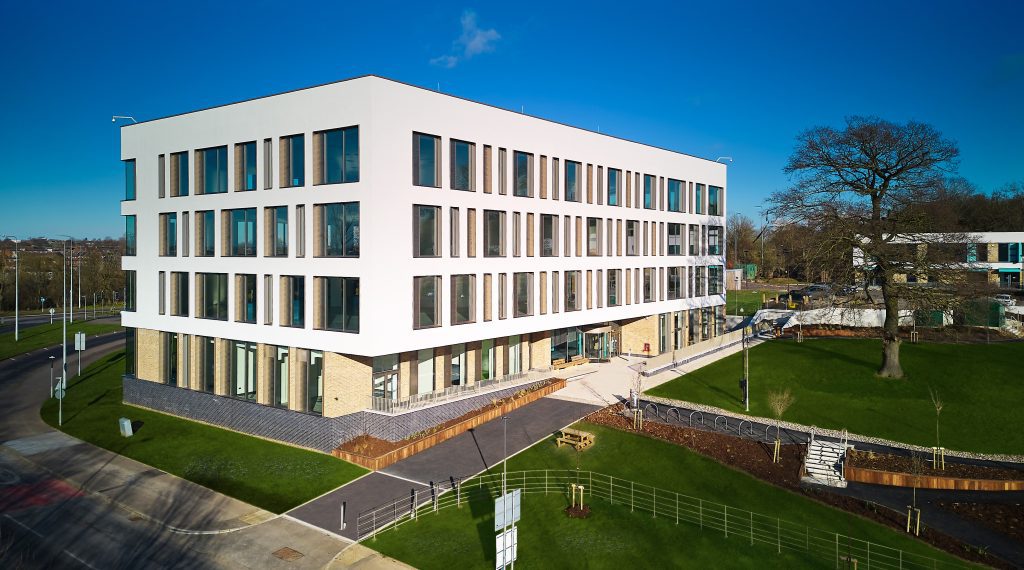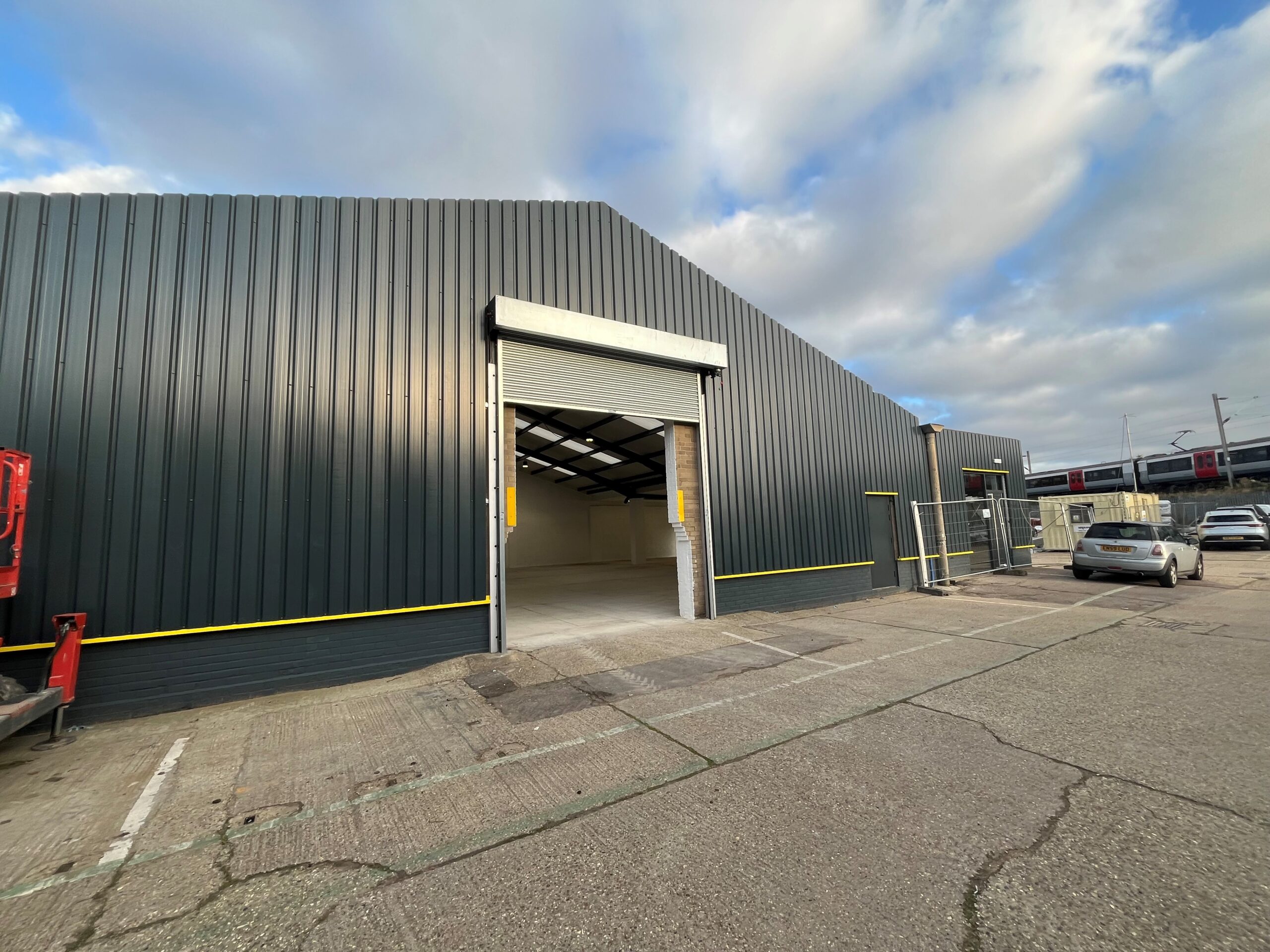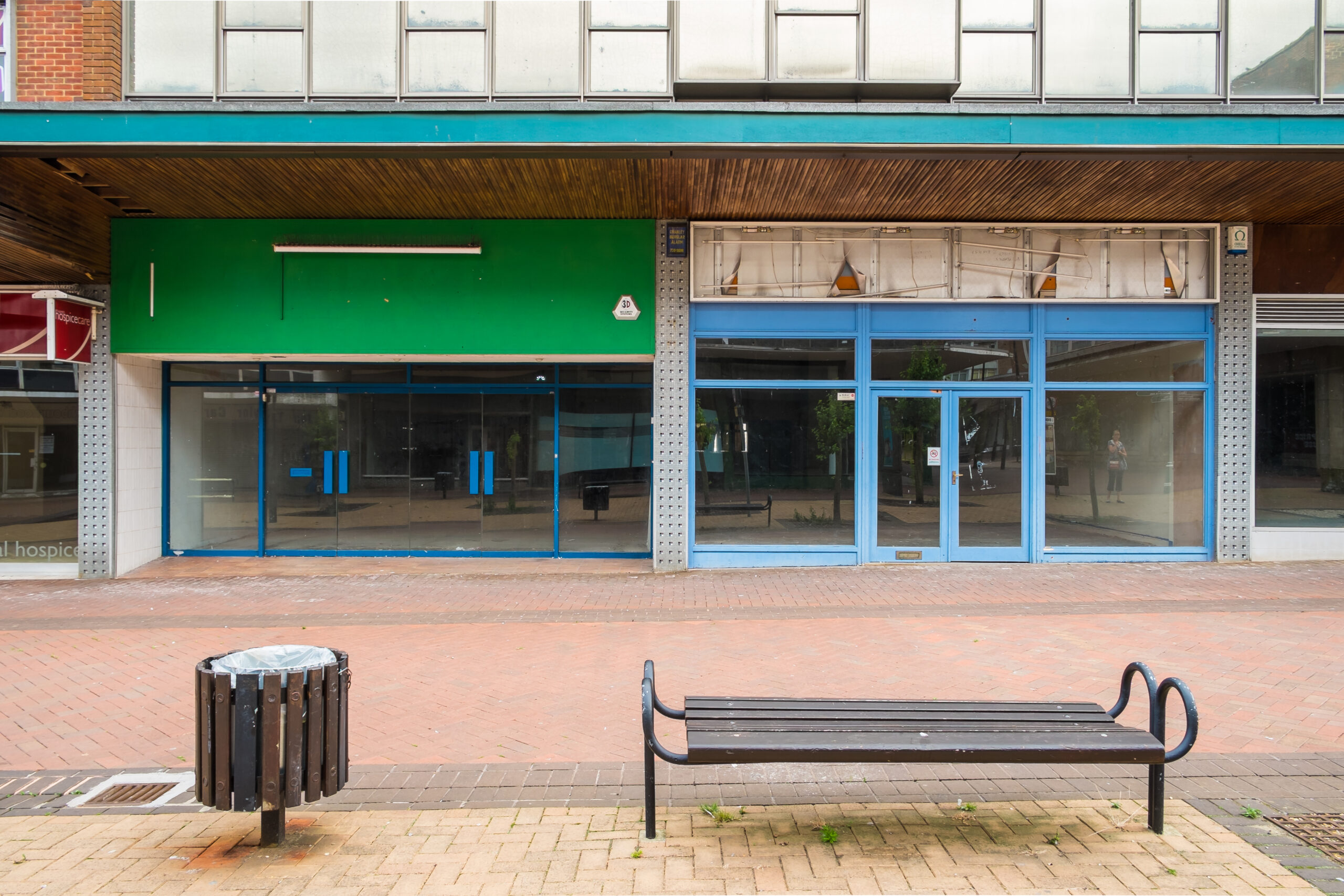A commercial building survey is a thorough, professional inspection of a property. The findings are detailed in a report to help interested parties fully understand the building they’re dealing with.
A survey is a valuable tool for commercial property owners, investors, developers, and occupants alike. When you know the true condition of a building, you can manage its risks, avoid unexpected liabilities, and protect your investment long term.
Our guide explores commercial building surveys and when you might need one. We cover the types of surveys available, what’s typically included in the inspection, and how to choose the right building surveyor for your property.
What Is a Commercial Building Survey?
A commercial building survey is a detailed inspection carried out by a qualified building surveyor to assess the condition of a property. It provides a clear picture of the building’s current state, including its structural integrity, repair and maintenance needs, and compliance issues.
A commercial building survey can also uncover hidden defects and highlight safety issues and legal obligations. It can also provide cost estimates for repairing material issues identified during the inspection.
Property surveys are vital for making informed decisions before buying, leasing, or developing a commercial property.
When Do You Need a Commercial Building Survey?
Commercial building surveys are generally commissioned:
- prior to purchasing, leasing, or selling a property,
- before a refurbishment or redevelopment project, and
- as part of a planned preventative maintenance programme.
Building surveys benefit both landlords and tenants. For landlords, they clarify responsibilities and help maintain the property’s value. For tenants, they highlight potential lease-related costs or risks, so you know what you’re signing up for.
What’s Included in a Commercial Building Survey?
The scope of surveys varies depending on the property and specific use case. A typical investigation covers the following:
- Structure and condition
- Roof, walls, floors, joinery, windows
- Services (heating, drainage, electrics, plumbing)
- Damp and decay
- Subsidence and structural movement
- Compliance with regulations (fire safety, asbestos)
- Energy performance and environmental considerations (increasingly common)
- Site conditions
- Hazardous or deleterious materials
Professional commercial building surveyors like Whybrow will help you define your survey scope based on the purpose and specific requirements, whether it’s purchasing, leasing, or development planning.
Types of Commercial Building Surveys
There are several types of commercial property surveys for a variety of circumstances. The most common include:
- Pre-Acquisition surveys: Pre-acquisition reports are completed before a purchase to help a client understand a property’s condition and risks (both freehold and leasehold).
- Vendor survey: A vendor (or pre-sale) survey assesses the condition of a property before it goes to market. It shows potential buyers that potential issues have been identified and factored into the price.
- Schedules of Condition: This survey takes place before a tenant moves in. The idea is to document the property’s conditions to protect the tenant from liability for pre-existing damage.
- Dilapidations survey: A dilapidations survey is conducted at the end of a lease. It aims to establish what the tenant may owe the landlord for restoring the leased property to its original state.
- Building Condition surveys: This survey provides a general overview of a building’s condition to support long-term maintenance and asset management.
- Specialist Building Pathology reports: These are focused reports that investigate specific issues, such as damp or structural defects.
A qualified commercial property surveyor will recommend the survey type and focus based on your circumstances.
Choosing the Right Commercial Property Surveyor
Your surveyor is your trusted advisor, so choosing the right one is crucial. Consider a team that meets these key criteria:
- RICS Accreditation: Ensure the surveyor is a member of the Royal Institution of Chartered Surveyors (RICS). This is a globally recognised body that guarantees professional standards and quality.
- Local market knowledge: Look for a firm with deep knowledge of the local area. Local insights are invaluable when it comes to understanding the building stock and mix, common issues (including regulatory), and market values.
- Expertise in your property type: A good surveyor will have a track record with a range of properties and sectors, from office buildings to industrial and mixed units.
- Understanding leasehold risks: If you are a tenant or landlord, find a surveyor who is an expert in leasehold matters and dilapidations (lease-related repair obligations that are often subject to dispute).
- Professional and practical: A trusted surveyor doesn’t just inspect and perform technical due diligence. They also provide practical advice to help you negotiate the complexities of commercial property ownership, occupation, development, or leasing, including compliance with local authority regulations.
Get Expert Guidance on Your Commercial Building Survey
Whybrow’s RICS-qualified team has extensive expertise in commercial building surveying across Essex and East Anglia.
With integrated services (including valuations and property management) and a strong track record across diverse property types, we offer trusted specialist advice tailored to your requirements.
Whatever type of commercial survey or leasehold guidance you need, don’t hesitate to get in touch with our friendly professional team.
FAQs
Who pays for a commercial building survey – the landlord or tenant?
It depends on the type of survey. A pre-lease survey and a schedule of condition are often paid for by the tenant to protect against future claims for existing damage. A dilapidations survey may be commissioned by either a landlord or tenant, depending on the lease terms.
What’s the difference between a commercial building survey and a valuation?
Valuations provide an estimate of the market value of the property. Surveys document information about the condition of the building without a specific indication of value.
Can a survey help with lease negotiations?
Yes. A commercial building survey identifies building defects, potential service-charge liabilities, and repair obligations. This gives tenants and landlords clear information for negotiating lease terms, rent, or repair responsibilities.













